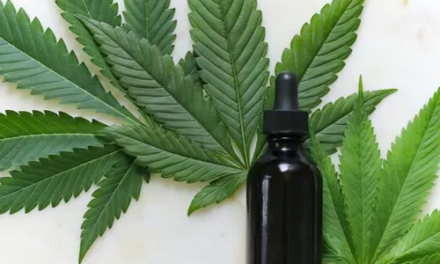Sunflower Seed Oil: The Top Face Oil for Skin Barrier
Sunflower seed oil might not be the most glamorous or exotic of skincare oils, but it could actually be the best for your skin. It’s got a nourishing and comforting consistency that can help treat dryness and irritation more effectively than other popular plant-based alternatives like marula, argan, jojoba or rosehip. Plus sunflower seed oil is also far cheaper and easier to get hold of – making it an ideal face or body oil for anyone looking to care for their skin barrier on a budget.

Dermatological studies have compared the skincare effects of sunflower seed oil with that of other oils like olive oil, and results show that it can produce far better results. In one study volunteers applied olive oil on one arm and sunflower seed oil on another. The skin treated with sunflower seed oil showed improved hydration levels whereas the “olive oil” arm worsened in its barrier function – showing how some skincare oils can worsen dryness over time rather than remedy it.
So why does sunflower seed oil work so much better?
It all comes down to its high levels of linoleic acid, a fatty acid that works well to protect the skin barrier and keeps it hydrated. Unfortunately other skincare oils have lower levels of this acid. That’s why they often fail to produce good results, while sunflower seed oil has been proven to be an effective moisturizer in multiple studies.
Sunflower seed oil is a powerhouse for our skin, due to its high content of linoleic acid. This essential fatty acid helps address the root cause of dryness and can soften the upper layer while reducing water loss from its surface. It can also help reduce inflammation, making it a great ingredient for acne-prone and sensitive skin.
Another benefit of sunflower seed oil is its safety: unless you are allergic to sunflowers, you can apply it on your skin without fear of irritation. The safety of unoxidized sunflower seed oil in skincare is comparable to the dermatological cold standard mineral oil. Studies have shown that sunflower seed oil is safe and helpful, even for the vulnerable skin of prematurely born infants (the same holds true for mineral oil, of course).
What makes sunflower seed oil stand out even more among other plant oils is its affordability. In fact, it is one of the cheapest moisturizing ingredients available and often costs less than petroleum-derived moisturizers.
Important tips for choosing sunflower seed oil for your skincare
While sunflower seed oil is without doubt one of the best skincare gifts of nature, there is one important caveat. As with all plant oils, sunflower seed oil is prone to oxidation. Oxidation is a chemical process. When a plant oil comes into contact with oxygen or sunlight, it starts a chemical reaction. As a result of this, the original compounds of the oil degrade and so you cannot expect the same benefits from an oxidized oil compared to the original. What is even worse is that oxidation produces new chemicals, such as peroxides, which are harmful and irritating to the skin. Unfortunately, the same compound — linoleic acid — that makes sunflower seed oil helpful to the skin’s barrier function also makes it more prone to oxidation. The higher the linoleic acid content of an oil, the quicker it oxidizes.
In fact, for industrial purposes (including food), people typically use sunflower plants that have been modified (through breeding or gene editing) to produce seeds with lower linoleic acid content – sometimes as little as half of the linoleic acid content of a seed from a “conventional” sunflower. This helps improve the oil stability and make it both more affordable and convenient for food consumption. However, this means that using the sunflower seed oil from your kitchen cabinet, even if it is not oxidized, might not be as beneficial to your skin as shown in studies.
All in all, sunflower seed oil is an excellent moisturizing ingredient. It is probably the best commonly available plant oil for your skin. There are two things to keep in mind for making the best out of this oily plant goodness for the skin:
-
Linoleic acid content: Not all sunflower seed oils are created equal. The type that is sold for cooking almost certainly has less linoleic acid and will not work well as a skin moisturizer.
-
Oxidation risk: Sunflower seed oil can oxidize quickly. To reduce the risk of oxidation, it is better to avoid “pure” oil products (100% sunflower seed oil) and opt for products with a solid antioxidant and preservative system in them. Lotions and creams that have sunflower seed oil only as one of their ingredients are also more likely to oxidize less quickly. Do not be tempted to use sunflower seed oil (or any other plant oil) that you think might be oxidized; it will harm, rather than benefit, your skin.
If you’re searching for a great, economical oil to nourish your face that provides plenty of skin-soothing and healing benefits, look no further than sunflower seed oil! This great ingredient can help alleviate dryness or irritation and also helping reduce acne. Additionally, even those with sensitive skin types (even babies!) can benefit from its gentle properties. However, be sure to purchase it in the beauty aisle rather than using the one found in your kitchen cupboard.
Choose your products based on actives
WIMJ Search allows you to select skincare products based on what’s inside. Filter products by actives included, and exclude ingredients you don’t want. Check the concentration of ingredients and potential irritants.
Sources
-
Effect of Olive and Sunflower Seed Oil on the Adult Skin Barrier: Implications for Neonatal Skin Care https://onlinelibrary.wiley.com/doi/abs/10.1111/j.1525-1470.2012.01865.x
-
Anti-Inflammatory and Skin Barrier Repair Effects of Topical Application of Some Plant Oils https://www.mdpi.com/1422-0067/19/1/70
-
Use of “natural” oils for moisturization: Review of olive, coconut, and sunflower seed oil https://onlinelibrary.wiley.com/doi/abs/10.1111/pde.13621
Related Articles
Winter Skin Care: Navigating the Chilly Season with Healthy Skin
Let’s dive into understanding winter skin and how to best care for it.
Azelaic Acid: How It Works and Why You Might Need It In Your Skincare
Azelaic acid may not be the most hyped skincare ingredient, but, frankly speaking, it deserves way more recognition. Despite its underappreciated status, azelaic acid boasts a myriad of evidence-backed benefits, including combating acne, mitigating rosacea, addressing hyperpigmentation, and fighting against free radicals.
Why Has My Skin Become Sensitive All of a Sudden?
Have you recently noticed your skin turning into a battleground of reactions? Is your once-placid complexion now flaring up at your go-to beauty products? You’re not alone. Suddenly sensitive skin can perplex anyone. Here’s a breakdown of why it might be happening and what you can do about it.
Does Bakuchiol Help With Acne?
Discover how Bakuchiol, a plant alternative to retinol, can help combat acne. Dive into the latest research findings, learn the effective concentration and application tips, and uncover why Bakuchiol might be your new go-to for clear, happy skin.
CBD Skincare Benefits and Unknowns
Discover the impressive potential of CBD in skincare and learn about the risks. Our evidence-based exploration covers the CBD potential for treating acne, eczema, psoriasis and combating inflammation.
Thiamidol
Dive into our comprehensive guide to thiamidol, an effective tyrosinase inhibitor with impressive results against hyperpigmentation. Explore its science, evidence, and how to incorporate it into your skincare routine.
Is Petrolatum In Skincare Bad?
Get the facts about petrolatum, a top ingredient in skincare. Learn how this powerful moisturizer soothes, protects, and hydrates the skin. Plus, discover why it’s trending on social media and how it’s safe even for the most sensitive skin areas.
Can You Use Retinoids for Rosacea-Prone Skin?
If you’ve been grappling with the frustrating skin condition called rosacea, you may have been advised to steer clear of retinoids. This advice typically stems from concerns that retinoids can further irritate your already inflamed skin. But here’s something that may surprise you: retinoids, in fact, are commonly used in rosacea medical treatments.
Sensitive & Reactive Skin: What to Avoid?
If you have sensitive or reactive skin, what not to do is at least as important as what you actively undertake in terms of skincare. Learn what ingredients and skincare practices to avoid to reduce your skin sensitivity issues and help heal your skin barrier.
Opting for Fragrance-Free Skincare: A Skin-Friendly Choice
Opting for Fragrance-Free Skincare: A Skin-Friendly ChoiceIs the smell of your skincare products hurting your skin? It's a question we often don't think about. Yes, the scents can be nice, but they can also cause problems. About one in three skin issues from cosmetics...




